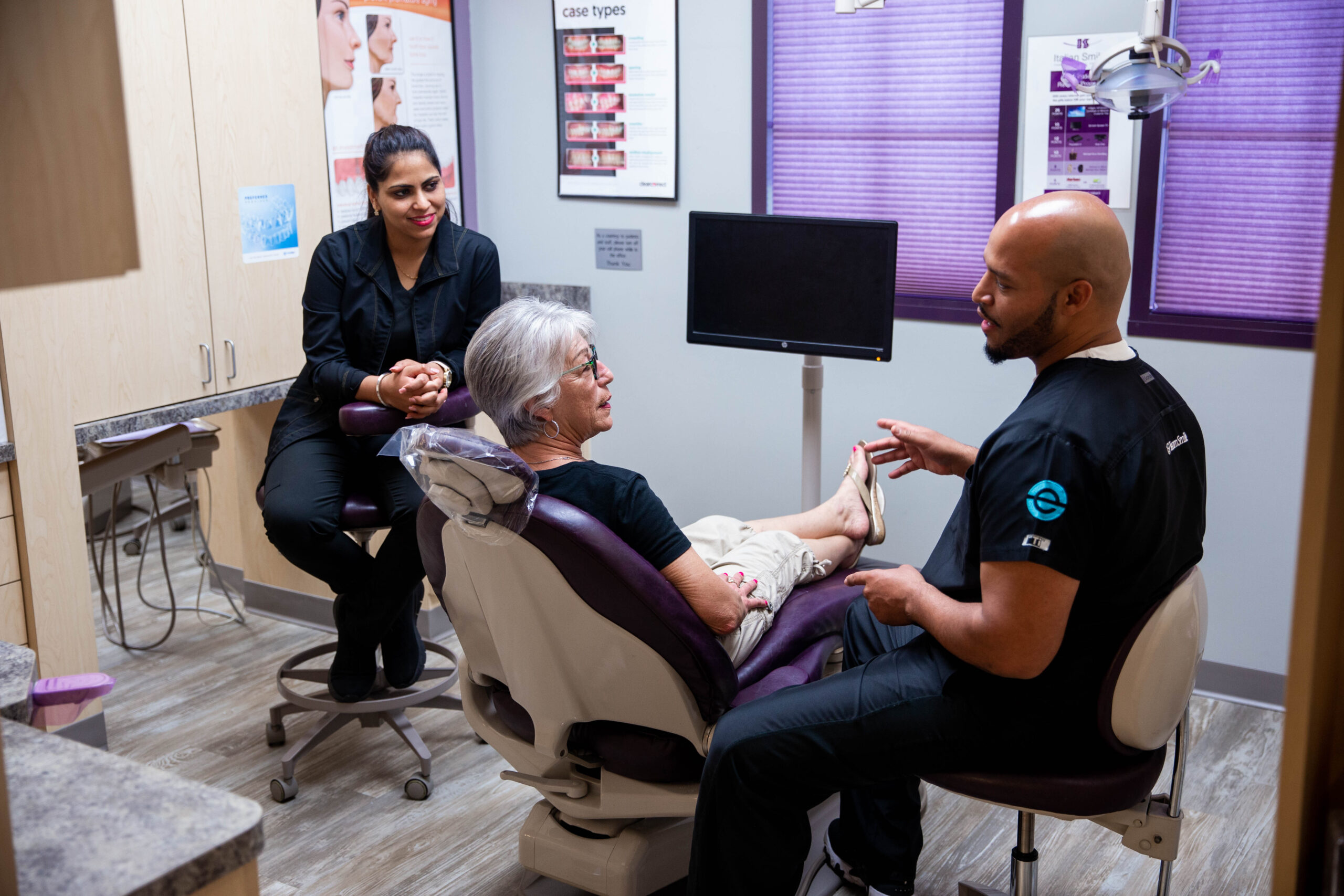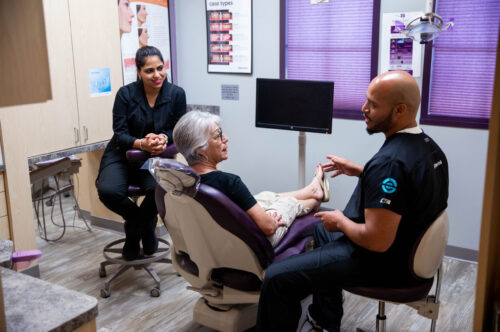Teeth Grinding in Sleep: Understanding Sleep Bruxism
Do you wake up morning after morning with a sore jaw, feeling too tired to focus or concentrate? These could be tell-tale signs of something known as sleep bruxism. Sleep bruxism is the technical term used to describe teeth grinding in sleep and if left untreated, can lead to many unpleasant symptoms such as headaches and worn down enamel on your teeth. As difficult as this condition may be for individuals suffering from it, there are solutions that can help significantly reduce its effects. To better understand what it is and how to treat it, read on!
What is Sleep Bruxism and How Does it Affect Your Health & Wellbeing?
Sleep Bruxism, often known as nocturnal teeth grinding, is a condition where individuals unconsciously clench their teeth while sleeping. This repetitive action can exert considerable force on the teeth and jaw, leading to a host of potential health issues. One may experience disrupted sleep patterns, chronic jaw pain or temporomandibular joint disorder (TMD), severe headaches, and even changes in facial appearance due to prolonged grinding. Over time, the persistent strain may wear down the teeth’s enamel, increasing the risk of tooth decay, sensitivity, and chipping. In addition, sleep bruxism can contribute to psychological distress, such as anxiety or depression, as the lack of quality sleep can significantly impact overall wellbeing. It’s thus crucial to identify and address this condition promptly, to negate these potential health consequences.

Common Symptoms of Sleep Bruxism
The symptoms of sleep bruxism can be subtle but steadily worsen over time, making early detection essential. They include:
- Chronic jaw or face pain: This often presents itself as a dull, persistent ache, which can worsen in the mornings after a night of grinding.
- Teeth grinding or clenching during sleep: This can sometimes be loud enough to wake your sleep partner.
- Worn tooth enamel: Over time, bruxism can lead to noticeable wear and tear on the teeth, exposing the deeper layers of the tooth.
- Increased tooth sensitivity: As the enamel wears down, teeth can become more sensitive to temperature or pressure.
- Disrupted sleep: Individuals may find themselves frequently waking during the night or experiencing difficulty falling asleep.
- Headaches or earaches: These often occur in the morning and can range from mild to severe.
Remember, not everyone who grinds their teeth will experience all these symptoms, and some people might not notice any symptoms at all. It’s important to mention any changes in your sleep or oral health to your dentist or doctor, as they can help diagnose and treat sleep bruxism before it leads to more serious complications.
Risk Factors Associated With Sleep Bruxism
While it’s not entirely clear what causes sleep bruxism, several factors can increase your risk of developing the condition:
- Stress and Anxiety: High levels of emotional stress, anxiety, or anger can trigger teeth grinding during sleep.
- Genetics: Sleep bruxism often runs in families. If your parents or siblings grind their teeth, you’re more likely to do so as well.
- Age: Sleep bruxism is more common in young children, although it can affect people of any age.
- Lifestyle Factors: Excessive consumption of alcohol, caffeine, or tobacco can increase your risk.
- Certain Medications: Some antidepressants and psychiatric medications can contribute to bruxism.
- Other Sleep Disorders: Conditions such as sleep apnea, insomnia, or sleep talking often co-occur with sleep bruxism.
- Certain Mental and Neurological Disorders: Individuals with conditions like ADHD, Parkinson’s disease, or dementia may be more prone to teeth grinding.
Remember, having one or more of these risk factors doesn’t necessarily mean you’ll develop sleep bruxism. However, being aware of them can help in early detection and intervention. If you notice any signs or symptoms of sleep bruxism, it’s critical to discuss them with your dentist or doctor to prevent sleep grinding.
Diagnosing and Treating Sleep Bruxism
Diagnosis of sleep bruxism often involves a thorough review of your medical history and dental examination by a healthcare provider. They may check for signs of tooth wear, damage to your jaw, or other dental issues related to bruxism. In some cases, you may be referred to a sleep specialist for further tests, like a polysomnogram, which monitors your sleep patterns, brain activity, heart rate, and more.
Treatment for sleep bruxism varies depending on the severity and underlying causes. It’s aimed at reducing pain, preventing permanent tooth damage, and improving sleep quality. Here are some treatments options:
- Dental Approaches: Mouth guards or splints can create a barrier between your top and bottom teeth to protect them from damage. They also can reduce any grinding noises.
- Behavioral Therapies: Techniques such as biofeedback, where individuals learn how to control their jaw muscle activity, can be beneficial. Stress management and relaxation techniques, such as yoga and meditation, can also help control the condition.
- Medications: While there is no specific drug to treat bruxism, some medications can help manage the symptoms or address the underlying causes. These can include muscle relaxants, Botox injections, or medications for anxiety or sleep disorders.
Remember, because each person is unique, what works for one person may not work for another. Therefore, it’s essential to discuss all potential treatment options with your doctor or dentist. By seeking professional help and making necessary lifestyle changes, individuals suffering from sleep bruxism can dramatically increase their chances of managing the condition effectively.

Tips for Managing Stress Levels to Reduce Risk of Sleep Bruxism
Managing stress levels is key in reducing the risk of sleep bruxism. Here are some effective strategies:
- Regular Exercise: Physical activity not only improves your overall health but also helps to reduce stress levels. Aim for at least 30 minutes of exercise most days of the week.
- Meditation and Yoga: These disciplines allow you to connect with your body, slow down, and give your mind a rest, helping to decrease stress.
- Balanced Diet: Eating a balanced diet can help your body better cope with stress. Avoid excessive caffeine and alcohol, as it can increase tension and interfere with sleep.
- Healthy Sleep Habits: Establishing a regular sleep schedule and creating a relaxing bedtime routine can improve the quality of your sleep.
- Time Management: Organizing your time effectively can help reduce feelings of stress and anxiety.
- Connect With Others: Spend time with family and friends, seek support when needed, and engage in social activities. Social interaction can help you feel more connected and less stressed.
- Professional Help: If your stress levels continue to be high and you’re finding it difficult to manage, consider seeking professional help such as counseling or psychotherapy.
Remember, it’s important to take time each day to relax and unwind, which can go a long way in managing stress and reducing the risk of sleep bruxism.
Alternatives to Treating Sleep Bruxism Without Medication
While medication is a common treatment for sleep bruxism, there are several non-pharmacological alternatives available. These include:
- Cognitive Behavioral Therapy (CBT): This therapy helps individuals identify and change harmful thought patterns and behaviors. It can be particularly effective for addressing stress and anxiety-related bruxism.
- Physical Therapy: Exercises designed to relax the jaw muscles, improve jaw movement, and reduce jaw clicking can be beneficial. A physical therapist can guide you through these exercises.
- Acupuncture: While more research is needed, some individuals have reported relief from bruxism symptoms following acupuncture treatment. This traditional Chinese medicine technique involves inserting needles into specific points on the body to balance the flow of energy or life force.
- Hypnotherapy: Hypnosis might be beneficial for those who grind their teeth in their sleep. By promoting relaxation and suggesting behavioral changes during a hypnosis session, individuals may experience a reduction in bruxism.
- Biofeedback: This technique uses monitoring procedures and equipment to teach individuals to control muscle activity in the jaw.
- Relaxation techniques: Methods such as deep breathing, progressive muscle relaxation, or guided imagery can help reduce stress and anxiety, thereby reducing the likelihood of teeth grinding.
It’s important to remember that effectiveness varies from person to person, and these treatments should be pursued under the guidance of a trained professional. Always consult with your healthcare provider before starting new treatment routines.
In conclusion, sleep bruxism is a common condition that affects many people. It can lead to discomfort, damaged teeth, and disrupted sleep patterns. However, with proper diagnosis and treatment, individuals can effectively manage the symptoms and prevent any potential complications.
https://www.google.com/maps?cid=10725474417078119454

